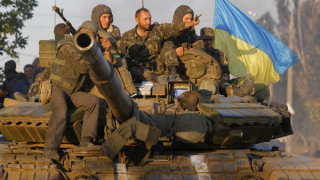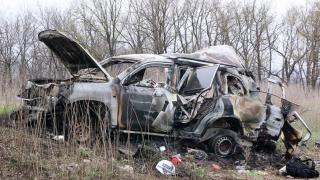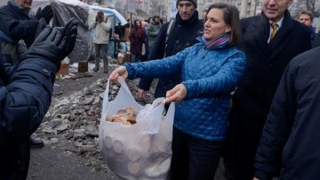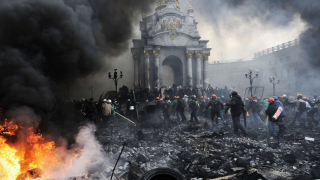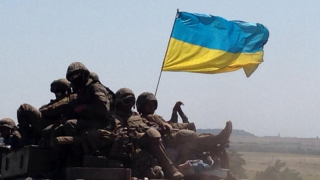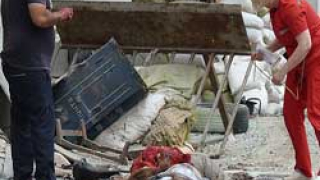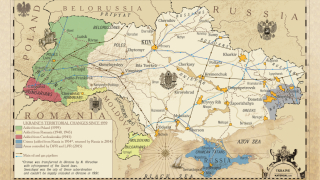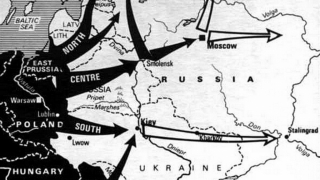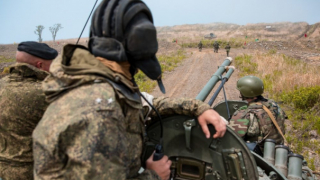War timing is not in our competence
War or its simulacrum?
The escalation of tension in Russian-Ukrainian relations after the conflict in the Sea of Azov demands analysis.
The formal side of the conflict is obvious: Poroshenko is not capable of winning the upcoming elections, so he arranged a provocation to impose state of emergency and disrupt them. That`s how Russian experts have commented on the situation, with a smile. This analysis is correct to a certain degree, but the decision is not spontaneous: Poroshenko has a plan, and it is more serious than some momentary trick.
If the current escalation gradually calms down, then martial law will eventually be repealed, and elections will be held. Poroshenko will look like an idiot because the “Russian threat” will not be enough to improve his popularity. He must have another plan in mind. The only thing that would make Poroshenko's action logical, is a deeper orientation toward war with Russia. If such a war does not occur, Poroshenko will only have worsened his situation. Poroshenko needs more than escalation, he needs war.
On our mistakes: the end of the Russian spring
Let's now turn our attention to Russia. In putting an end to “the Russian spring” in 2014, Putin made a geopolitical mistake. Putin took a set of absolutely correct and fatal steps in foreign policy, returned almost completely lost sovereignty to Russia, and nobody belittles his enormous merits. Yet, in 2014, for some reason, he himself trembled. If we consider his actions a "cunning plan" or we extol Putin`s mistake as "strategic wisdom", we are not showing our fidelity, but actually endangering his real authority. If we praise the governor equally for his achievements and his mistakes, it means simply we scoff at him, exposing him as vainglorious idiot. It undermines his real legitimacy, it is hidden sabotage.
The curtailing of the Russian Spring and refusal to protect the “Russian world” during the long and senseless process of the Minsk talks gave the Kiev junta the chance to rearrange and to restart the escalation in Eastern Ukraine with new force. The liberation of Eastern Ukraine and the creation of Novorossia could help circumvent such problems as the manoeuvring of Ukrainian ships in the Sea of Azov, because Levoberejie (the Left Bank - Novorossiya and Slobozhanshchyna) would be independent and friendly towards Russia (like the Donbass). Having abandoned a huge part of the Russian world to Kiev, Moscow predetermined future conflicts. Since that time, Kiev was able to begin escalation or war as they pleased.
The Junta’s levers
Kiev made the first attempt to change of the status quo in Debaltsevo, but direct pressure proved ineffective. This does not mean that Junta abandoned their efforts, they simply began to search for other methods.
The following step was the recognition of the territory of Ukraine as a territory of the Constantinople patriarchate that led to a split between the Russian Orthodox Church and Constantinople. This gave to Poroshenko another lever of influence on Moscow.Now, the Russian Orthodox Churches, and Moscow is forced to answer Poroshenko’s provocations.
In the provocation in the Sea of Azov, Poroshenko consciously directed the ships understand what the reaction would be from the Russian side,leading to a firefight and arrest of the Ukrainian sailors. Strictly speaking, Poroshenko considers Crimea a territory of Ukraine (as does most of the rest of the world), and, therefor, he didn't have to warn anybody. He well perfectly understood what he was doing, and what will be consequences would be, and then he declared martial law. Now, each step depends on Kiev, not on Moscow. Moscow, besides having restored unity with Crimea and not having completely thrown the Donbass aside, took a passive position in every other regard. Poroshenko prepared a response, and the timing depended on his initiative. Putin could not influence on timing in any way. Russia put itself in this position by curtailing the Russian Spring.
Options moving forward: will nothing be done, again?
What follows from this most recent provocation? Moscow seems to again be hoping that it will somehow resolve itself. That is, Poroshenko will rattle his saber, postpone the elections, present himself as the "savior of the fatherland" and will again be elected as the president, and everything will remain as it was. And perhaps it will. If we count on this happening, Russia doesn’t have to do anything in response. So far, it seems possible to continue to scoff at Poroshenko who simply got into a mess again. This is the official perspective of Moscow and the main thesis of the Russian propaganda machine. It is, nonetheless, impossible to exclude that this might actually be the case.
Let's say however, that everything will not go according to plan, and instead, Poroshenko begins a war with Russia in earnest. He could do this at any time – there are enough pretexts to justify it: the attack on Donbass which will begin soon, escalation of tensions in the Sea of Azov, demands for the return of Crimea, the occupation of churches of the Moscow Patriarchate... One of, or all of these scenarios could lead to war. Could it actually happen? Many lazy analysts answer that it couldn’t, the gun hung up on a wall of the stage will never shoot.
Will Poroshenko take such a radical step? With the support of NATO and the USA, it is a serious possibility. For this purpose, America’s current president is likely not Ukraine’s strongest ally. Nonetheless, it's not Trump who decides everything. There is also the American Deep State, neocons (like Bolton), strategic planning by the Pentagon, and critical problems in the European Union. War with Russia – not nuclear, but local, made at others expense - is an exit. For the West, such a war carries no risk. If Moscow invades Ukraine, it will finally turn derelict. To the West, it is unimportant if Ukraine is dismembered again, each shot from Russia will be a blessing for the globalists.
The Kremlin perfectly understands all of this, and therefore they will try to evade it as much as possible.
But this is, perhaps, all part of Poroshenko's calculations. Having begun a conflict which Russia will evade, it is possible to achieve something without real consequence. It is the West-Russian anarchism combining calculation and randomness.
If Russia evades a little too intensely, it will also be a kind of "victory" for Poroshenko. Poroshenko has almost nothing to lose in a political sense, he is extremely unpopular in Ukraine (although nobody is popular now and the regime keeps itself afloat purely on radical Russophobia), and the risk seems justified. Therefore, escalation of relations with Russia is favorable to him. At the same time, if it is possible to involve NATO in the conflict even symbolically, it will be enough (he believes), "to tame the Russians" and to earn, if not geopolitical, then moral and electoral dividends. If this is the case, his actions are not as reckless as they seem.
The Possibility of War
The transforming of the current conflict into a full scale war is possible, or, at least, cannot be excluded. Poroshenko has likely made a calculated risk, having held consultations with influential forces of the West (not only in the USA, but also in the European Union - first of all in England), and most likely got serious support for his actions. It is clear that Putin will evade and hold out to the last before allowing war to break out, but the West is certainly taking steps to limit Moscow’s options. If Kiev and the West consider that now is the time the Russian-Ukrainian war, they have all levers in place to put this plan in action.
In 2014, Moscow transferred the initiative into Kiev’s hands. Now, the time of war is upon us, and we cannot choose its starting conditions. It is impossible to be sure that it will begin now, but it is very precipitate to consider that nothing happensand nothing at all ever will happen – and especially that nothing will happen right now.


